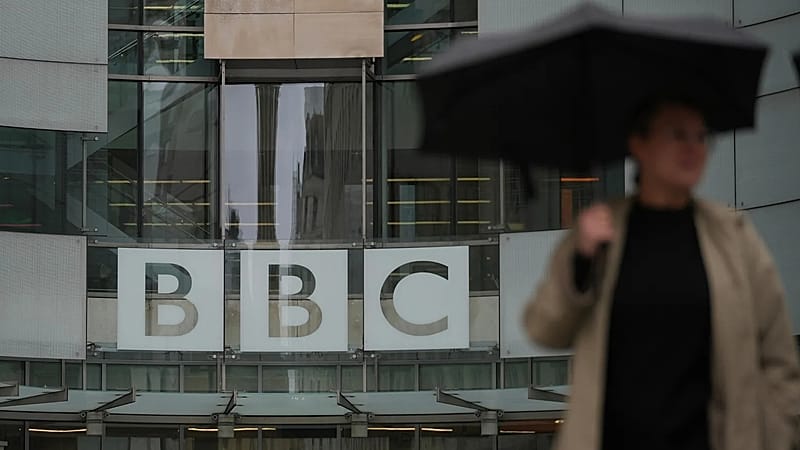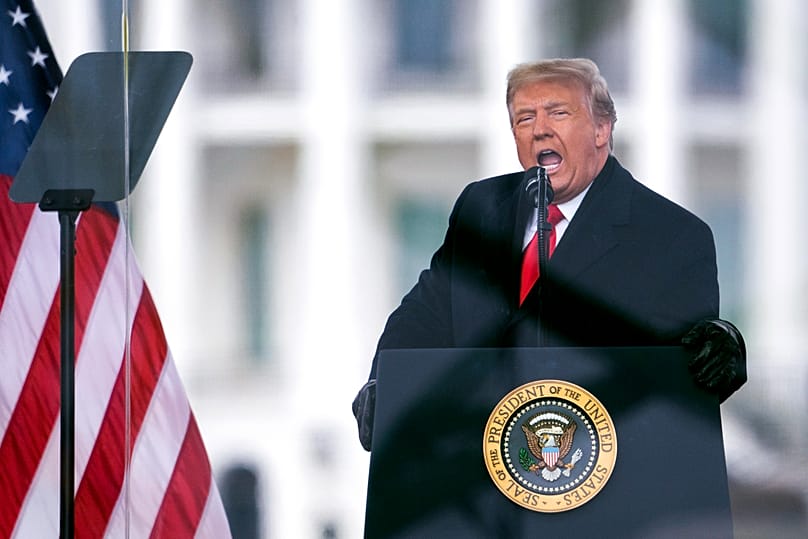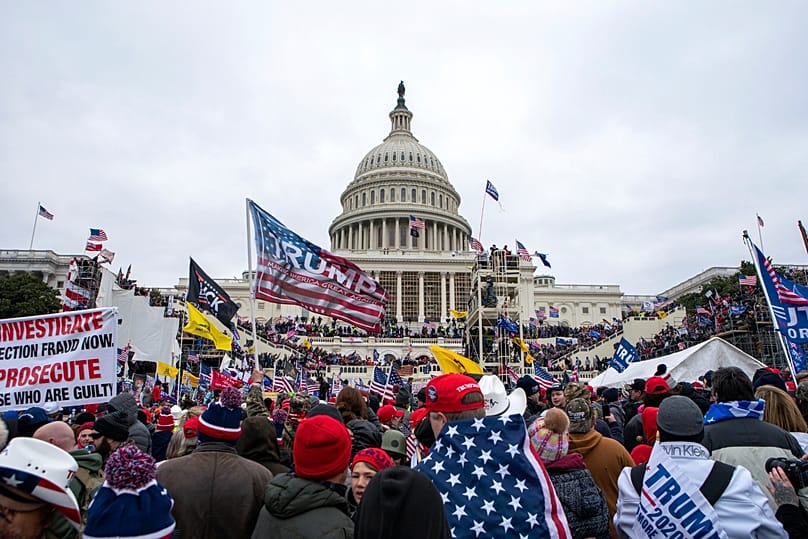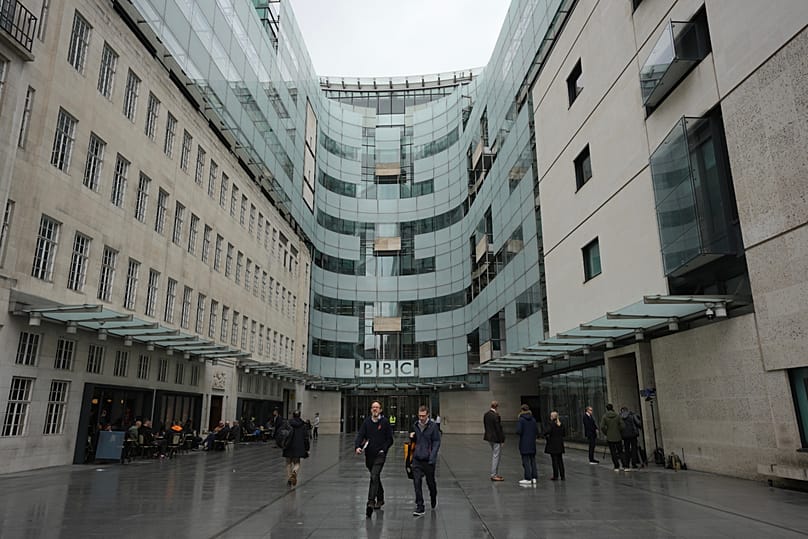BBC receives letter from Donald Trump threatening legal action over edited speech

The BBC confirmed on Monday that it has received a letter from US President Donald Trump threatening legal action after the broadcaster aired an edited speech in which he appeared to explicitly encourage the Capitol riots in January 2021.
The controversy surrounding what the BBC has called an "error of judgement" led Director General Tim Davie and CEO of News Deborah Turness to resign on Sunday.
The episode of the flagship current affairs programme "Panorama" showed a spliced-together clip from a January 2021 speech in which Trump claimed the 2020 presidential election had been rigged.
Trump is shown saying, "We're going to walk down to the Capitol and I'll be there with you. And we fight. We fight like hell."
Trump used the phrase "fight like hell" toward the end of the speech, but without referring to the Capitol.
"We fight like hell. And if you don't fight like hell, you're not going to have a country anymore," Trump said.
The hour-long documentary, entitled Trump: A Second Chance?, was broadcast days before the 2024 US presidential election.
It spliced together three quotes from two sections of the 2021 speech, delivered almost an hour apart, into what appeared to be one quote.
Among the parts cut out was a section where Trump said he wanted supporters to demonstrate peacefully.
In a letter to the UK parliament's culture, media and sport committee, BBC chairman Samir Shah said the purpose of editing Trump's words was "to convey the message of the speech" so viewers could understand how Trump's supporters received it and what was happening on the ground.
He said the programme had not attracted "significant audience feedback" when it first aired but had drawn more than 500 complaints since a dossier on standards and guidelines was made public.
Shah said the BBC has received communication from Trump and is "considering how to reply."
In a resignation letter to staff, Davie said: "There have been some mistakes made and as director-general I have to take ultimate responsibility."
Turness said the controversy was damaging the BBC and she quit "because the buck stops with me."
Turness defended the organisation's journalists against allegations of bias.
"Our journalists are hardworking people who strive for impartiality, and I will stand by their journalism," she said Monday. "There is no institutional bias. Mistakes are made but there’s no institutional bias."
Trump posted a link to a Daily Telegraph story about the speech-editing on his Truth Social network, thanking the newspaper "for exposing these corrupt 'journalists'. These are very dishonest people who tried to step on the scales of a presidential election."
National institution
The 103-year-old BBC faces greater scrutiny than other broadcasters and criticism from its commercial rivals because of its status as a national public service funded through an annual licence fee of £174.50 (€198.72) paid by all households that watch live TV or any BBC content.
The broadcaster is bound by the terms of its charter to be impartial and critics are quick to point out when they think it has failed.
It is frequently a political football, with conservatives seeing a leftist slant in its news output and some liberals accusing it of having a conservative bias.
It has also been criticised from all angles over its coverage of the Israel-Hamas war in Gaza.
In February, the BBC removed a documentary about the Strip from its streaming service after it emerged that the child narrator was the son of an official in the Hamas-led government.
Governments of both left and right have long been accused of meddling with the broadcaster, which is overseen by a board that includes both BBC nominees and government appointees.
Some defenders of the BBC allege that members of the board appointed under previous Conservative governments have been undermining the corporation from within.
UK Prime Minister Keir Starmer's spokesperson Tom Wells said the centre-left Labour Party government supports "a strong, independent BBC" and does not think the broadcaster is biased.
"But it is important that the BBC acts to maintain trust and corrects mistakes quickly when they occur," he said.




